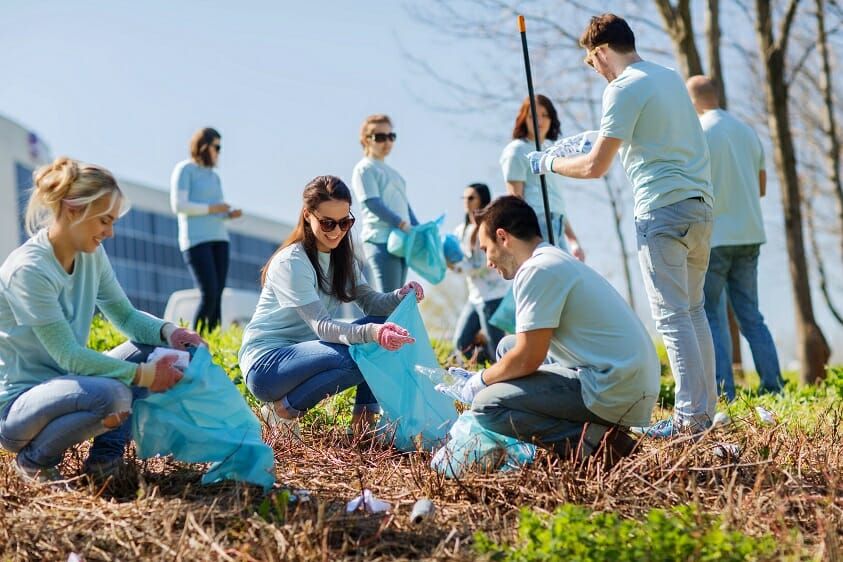
“The Fappening” refers to a major leak of celebrities’ private photos in September 2014. This incident involved sharing explicit images and videos without consent. It sparked discussions about privacy, consent, and the ethics of sharing private content. This article examines the Fappening’s origins, its impact on privacy and security, the legal issues it raised, and its lasting effect on celebrities and social media.
What is the Fappening?
The Fappening is a term for the 2014 leak of private, often intimate photos of celebrities, mainly actors. It sparked debates on privacy, consent, and the ethics of sharing personal images online. The name combines “fap,” slang for masturbation, and “happening,” indicating a significant event.
The Fappening occurrence became known when various high-profile superstars found their private photographs uncovered on different web-based stages. This break of protection featured the weaknesses of individual computerized security and started discussions about the obligation of the two people and tech organizations in shielding individual information. The occasion impacted the casualties as well as had more extensive ramifications for web protection regulations and cultural perspectives towards such infringement.
The Timeline of Events
The Fappening kicked off on September 1, 2014. A hacker leaked private photos of celebrities on 4chan. This list included Jennifer Lawrence, Kate Upton, and Ariana Grande. The hacker exploited flaws in Apple’s iCloud. This allowed access to private accounts and photos.
The incident quickly grabbed media attention. Many outlets reported on the embarrassment and the stars involved. As the story unfolded, the FBI and other agencies started investigating the leaks. Meanwhile, the public reacted with shock, disbelief, and curiosity. This event was notable. It wasn’t just about stolen photos; it was a serious violation of privacy.
The Implications of the Fappening
The Fappening had profound implications for both the victims and the wider society. For the celebrities involved, it was not just an invasion of privacy; it also affected their careers and personal lives. Many of the affected celebrities expressed anger and disappointment over the lack of respect for their privacy and the way their bodies were objectified in public discourse.
The Fappening led to crucial talks about online privacy and tech companies’ duties. It raised concerns about cybersecurity and the dangers of weak protections. The event showed a clear need for better security education, especially for celebrities.
Legal Consequences
After the Fappening, both the hackers and the platforms faced legal consequences. The FBI started investigating to find the hacker. In 2016, they arrested Edward Majerczyk. He pleaded guilty and received probation and community service.
The Fappening led to criminal and civil actions. Celebrities sued those who shared their private photos without permission. These lawsuits showed how hard it is to protect privacy online and questioned whether current laws are enough to stop harassment and exploitation.
The Cultural Impact
The Fappening was a crucial event that changed our views on privacy and consent in celebrity culture. It highlighted voyeurism and the objectification of women. This led to discussions about misogyny and the exploitation of female stars.
Moreover, the Fappening brought to the forefront the broader implications of digital technology on privacy. It served as a wake-up call for many individuals regarding the importance of securing their personal information online. The incident led to increased scrutiny of how social media platforms handle private data and a push for more robust security measures to protect users’ rights.
The Role of Social Media
Social media was key in the Fappening leak and its aftermath. After the initial leak on 4chan, Twitter and Reddit quickly shared the stolen images. This case showed how hard it is to moderate content and control non-consensual sharing online.
The Fappening sparked a debate on the ethics of sharing illegally obtained images. Many social media users felt entitled to view these leaks. They often overlooked the severe privacy violations faced by those involved. This behavior highlighted the complexities of digital consent and the moral issues in consuming exploitative content.
Responses from Celebrities
After the Fappening, many celebrities shared their emotional struggles. Jennifer Lawrence, a major victim, spoke out against it. She said the stolen photos violated privacy and were exploitative. She also urged society to rethink its views on privacy and consent, asking people to consider the harm of sharing non-consensual images.
Other celebrities agreed, stressing the need for empathy towards privacy violation victims. Their comments made the situation more personal. They reminded everyone that victims are more than just famous people. They are individuals whose lives have been deeply affected.
The Evolution of Digital Privacy Laws
The Fappening ignited talks about digital privacy and the need for better online protection. Following the event, the call for stronger data and cybersecurity rules grew. Groups and activists pushed for laws to make companies responsible for data breaches. They also sought harsher penalties for online harassment and exploitation.
The incident showed that tech companies need to be more transparent about their data practices. It also raised awareness about online privacy risks. People started pushing for better security to protect their data.
The Psychological Impact on Victims
The psychological impact of the Fappening on the victims was profound and often devastating. Many of the celebrities involved reported feelings of shame, anxiety, and depression in the wake of the incident. The invasion of their privacy forced them to confront not only the loss of control over their personal images but also the societal judgment and scrutiny that followed.
The leak had lasting emotional effects. Many victims were traumatized by the exposure of their private lives. This damage strained their relationships with family, friends, and partners. The Fappening revealed the psychological impacts of digital privacy breaches. It showed the urgent need for support for those affected.
The Conversation Around Consent
The Fappening sparked crucial talks about consent in the digital age. It highlighted the issue of sharing intimate images without consent, often called “revenge porn.” This event underscored the need for consent in both personal and digital realms.
Advocacy groups and individuals began to champion the cause of consent education, emphasizing the need for clear communication and understanding in relationships. The discussions around consent also extended to the role of technology in enabling or undermining individual autonomy. The Fappening underscored the urgent need for a cultural shift towards a more respectful and responsible approach to sharing and consuming digital content.
The Rise of Cybersecurity Awareness
In response to the Fappening and similar incidents, there has been a notable increase in awareness regarding cybersecurity practices. Many individuals began to take steps to protect their personal information online, including using stronger passwords, enabling two-factor authentication, and being more cautious about sharing sensitive content on cloud services.
Tech companies also recognized the importance of enhancing their security measures to prevent future breaches. Following the Fappening, many platforms implemented more robust security protocols and began educating users about the importance of safeguarding their accounts. The event served as a pivotal moment in highlighting the intersection of technology, privacy, and personal responsibility in the digital age.
The Future of Digital Privacy
The Fappening continues to resonate in discussions about digital privacy and the ethical responsibilities of individuals and companies. As technology advances, so do the methods used to exploit personal information. This evolving landscape necessitates ongoing conversations about the implications of sharing intimate content online and the importance of protecting one’s privacy.
Looking ahead, it is crucial for society to prioritize digital literacy and awareness of privacy rights. Educating individuals about the risks associated with online sharing, as well as the importance of consent and personal responsibility, can help create a safer digital environment for everyone. The lessons learned from the Fappening can inform future approaches to privacy, ensuring that individuals are better equipped to navigate the complexities of the digital world.
FAQs
1. What caused the Fappening incident?
The Fappening incident was caused by a hacker exploiting vulnerabilities in Apple’s iCloud service, allowing unauthorized access to the personal accounts of several celebrities. The hacker was able to download and leak intimate photos that were meant to be private.
2. Which celebrities were affected by the Fappening?
Several high-profile celebrities were affected by the Fappening, including Jennifer Lawrence, Kate Upton, Ariana Grande, and many others. The leak involved a range of explicit images that were shared widely across various online platforms.
3. What were the legal repercussions of the Fappening?
In the aftermath of the Fappening, there were legal actions taken against both the hacker and those who shared the leaked images. Edward Majerczyk was arrested and pleaded guilty to charges related to the hacking, receiving probation and community service. Celebrities also pursued civil lawsuits against websites and individuals involved in disseminating the stolen images.
4. What impact did the Fappening have on discussions about digital privacy?
The Fappening significantly raised awareness about digital privacy and security issues. It sparked important discussions on the responsibilities of tech companies in protecting user data and the need for stronger privacy laws. The incident underscored the importance of educating individuals about safeguarding their personal information online.
5. How did the Fappening influence societal attitudes towards consent?
The Fappening highlighted the critical importance of consent, particularly in the context of sharing intimate images. It prompted conversations about the ethics of viewing and sharing non-consensual content, leading to increased advocacy for consent education and awareness around the implications of digital sharing.
Conclusion
The Fappening was not just embarrassing. It sparked important talks about security, consent, and the moral duties of online content. It showed how vulnerable people are online and the need for better privacy protection.
Society needs to learn from the Fappening. We must build a culture that values consent, protects people, and improves online security. This event shows the need for talks about using technology ethically and protecting rights in a digital world.






